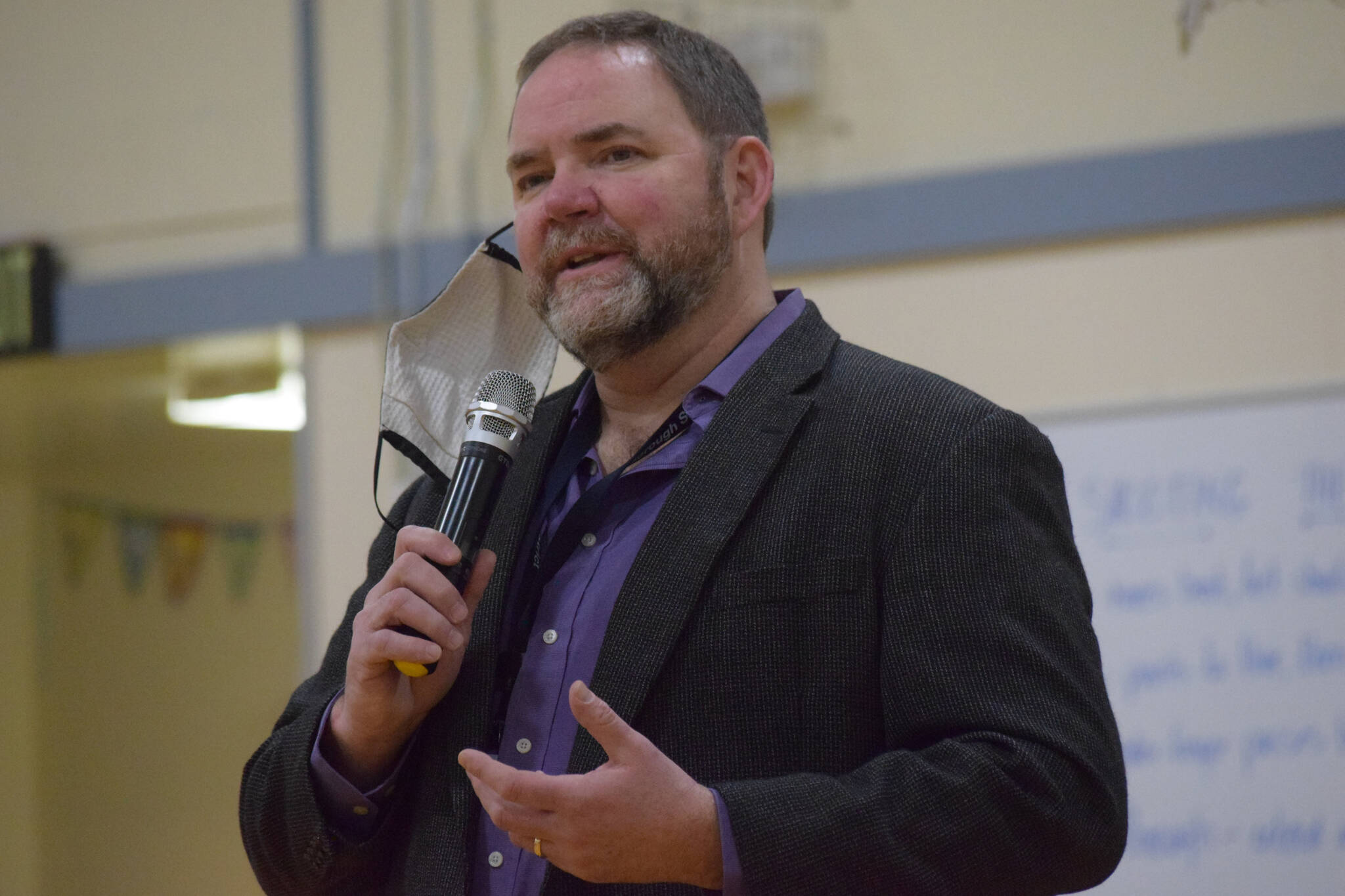It’s no secret that the Kenai Peninsula Borough School District is in the red when it comes to school maintenance.
The average lifespan of the district’s facilities is 46 years. Nearly 40% of facilities are more than 50 years old.
The district last fall identified $420 million worth of maintenance, including $166 million worth of “critical needs.” For perspective, the district’s total operating budget for the last fiscal year is about $134 million.
A $65.5 million bond package up for consideration by borough voters Oct. 4 would start to chip away at the problem.
Per Superintendent Clayton Holland, tackling major maintenance issues would ultimately save the district money.
“The message I want to get across is (that), in the long run, we’re going to be saving money by doing this,” Holland said of school maintenance.
From the district’s perspective, Holland said, knocking out some of the projects that continually cost the district a lot of money will free up funds that can be used to address smaller needs.
KPBSD Director of Planning and Operations Kevin Lyon said earlier this year that the district has worked closely with the Kenai Peninsula Borough, which owns district buildings, to tackle small projects, such as school boilers used for temperature control and failing windows.
Kenai area drivers may have noticed, for example, that the stretch of pavement between Kenai Central High School and the Challenger Learning Center is newly free of potholes. That project, Lyon said Friday, was finished just before school started.
The $65.5 bond package up for consideration by borough voters this fall would complete 10 projects at 13 of the district’s 42 schools. Projects range from $2.5 million in security upgrades to Kenai Middle School, to the construction of a $500,000 concession and restroom facility at Kenai Central High School, to improvements to student drop-off areas at four middle and elementary schools.
The most expensive project on the list is the reconstruction of Soldotna Elementary School — KPBSD’s oldest school — which comes in at around $21.5 million. The building, located across the street from the George A. Navarre Admin Building, sits on a wooden foundation that makes heating inefficient. Refurbishing the school, Holland said, is comparable to the cost of building a new one.
If voters approve the bond package, the new Soldotna Elementary School would have a smaller footprint, be two stories and located close to where the current building is. Construction of the new building, Holland said, would occur about where the current playground is, which would allow students to continue attending school while the new facility is built.
Hand-in-hand with the reconstruction of Soldotna Elementary would be the repurposing of the currently vacant Soldotna Prep School building on West Redoubt Avenue. Also through the bond package, the KPBSD administrative offices, River City Academy, Connections Homeschool and Soldotna Montessori Charter School would all relocate to the Soldotna Prep building.
“Even though it’s a shared building, each (school) is designed to have its own area,” Holland said.
Relocating to the Soldotna Prep building would not necessarily affect the groups who currently use the space, such as the Boys and Girls Clubs, and would put district administrators closer to students and classrooms, Holland said.
Looking ahead, Holland said he hopes to be more proactive when it comes to maintenance. Hundreds of millions of dollars’ worth of maintenance doesn’t happen overnight.
“There’s no reason we should be in this position, to be real frank,” Holland said. “ … At this point, you’re really trying to provide a big correction and get things set on the right (track).”
Holland said he would like to see the district take care of maintenance issues “at the root,” before they become bigger. The district is required by the State of Alaska to have a five-year plan, but he said the district is looking at working with the borough to develop an even longer-term plan that more closely aligns with how the borough already operates.
The investment into public schools, Holland said, is about more than just the school district.
“If we’re committed to having the Kenai Peninsula have a strong economy, that goes hand-in-hand with having a strong school system and facilities that support that,” Holland said.
That’s in addition to the message that good facilities send to students.
“We should really be demonstrating that we value their safety, we value the facilities that they’re in (and) that we are a top-notch school district,” Holland said. “Part of that goes to show we value our facilities.”
Reach reporter Ashlyn O’Hara at ashlyn.ohara@peninsulaclarion.com.

